Ever wonder what it is like to go inside permafrost? Well, the U.S. Army Corps of Engineers did, and bored a tunnel. It is the only tunnel like it on this continent.
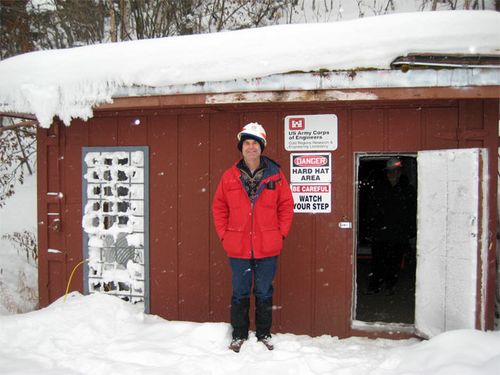 You step through that door, and the tunnel goes into the hillside.
You step through that door, and the tunnel goes into the hillside.
Today we went into the permafrost tunnel. The walls of the tunnel are made of loess, which is dusty rock flour ground by glaciers and transported here by the wind. Also inside are wedges and lenses of pure ice, and lots of fossils from the Pleistocene epoch, tens of thousands of years old. I saw bison bones, tree roots, and sedges.
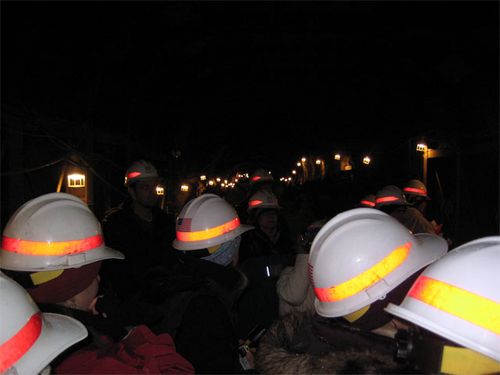 Actually, there was plenty of light to see by.
Actually, there was plenty of light to see by.
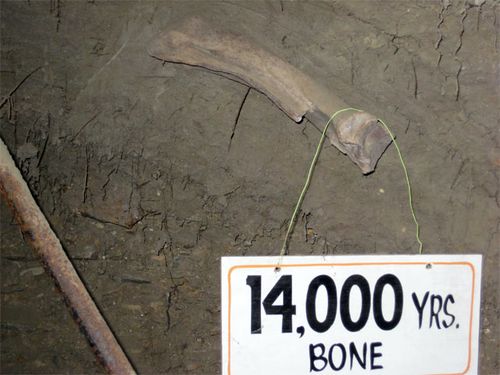 These are from an extinct steppe bison - if you want to see a whole one, look at my journal from February 24.
These are from an extinct steppe bison - if you want to see a whole one, look at my journal from February 24.
Permafrost is soil with permanantly frozen moisture. However, global warming is starting to take the "perm" out of permafrost and melt it. This is a problem, because about a third of the planet's organic carbon is locked up in permafrost. Melting the permafrost releases the carbon into the atmosphere as carbon dioxide and methane gas, and makes the planet warm up even more.
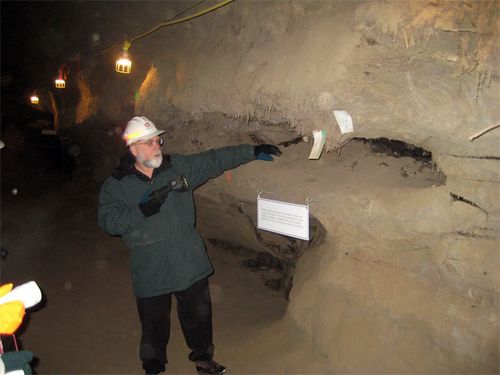 He is a U.S Army Corps on Engineers employee.
He is a U.S Army Corps on Engineers employee.
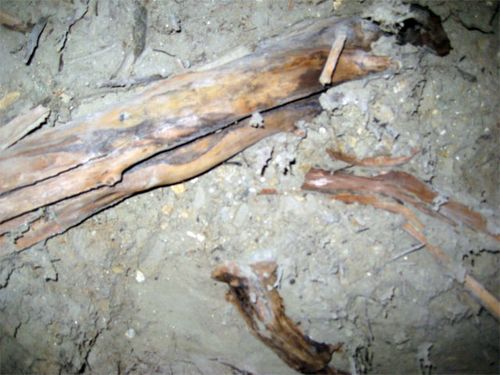 These are fossil tree roots, not modern. Probably they are spruce.
These are fossil tree roots, not modern. Probably they are spruce.
I could definitely smell the odor of the decomposing fossils in the tunnel.
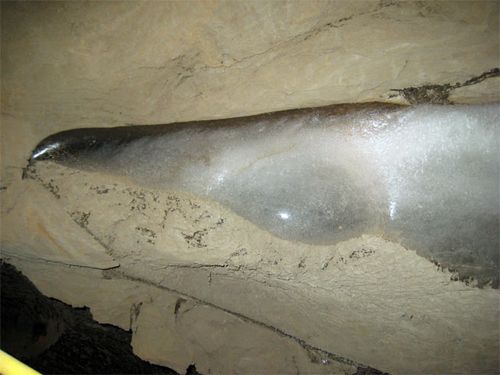 Cracks in the soil filled with water, and the sides got pushed apart.
Cracks in the soil filled with water, and the sides got pushed apart.
It is difficult and expensive to build a building on permafrost. The heat from the buildidng tends to melt the permafrost, and then the foundation sags and cracks, and the whole building tilts to one side.
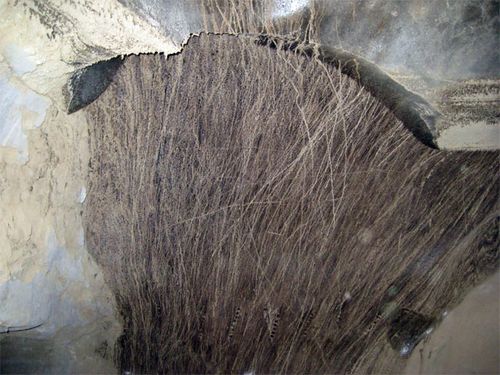 The lines are dusty rock flour made by glaciers and filling in cracks in the ice.
The lines are dusty rock flour made by glaciers and filling in cracks in the ice.
Not all of the area around Fairbanks has permafrost, but here is is hundreds of feet thick.
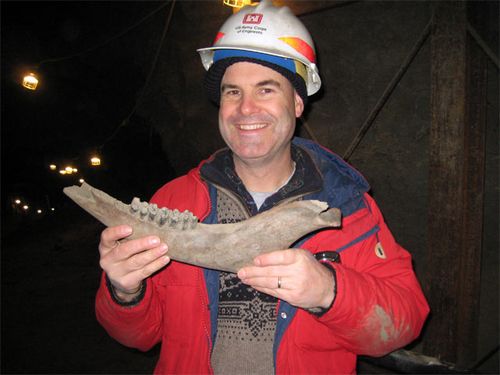 It is from an extinct steppe bison, and it just fell out of the wall of the tunnel and was lying on the ground.
It is from an extinct steppe bison, and it just fell out of the wall of the tunnel and was lying on the ground.
